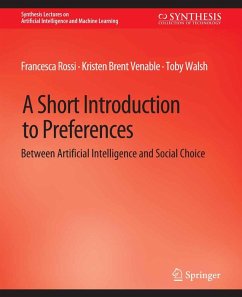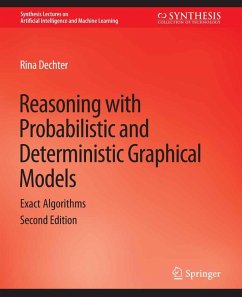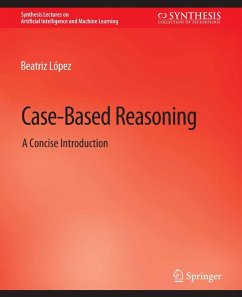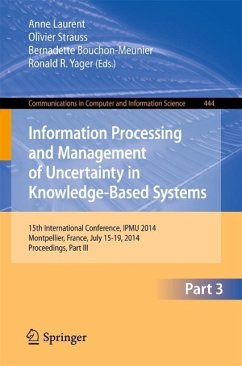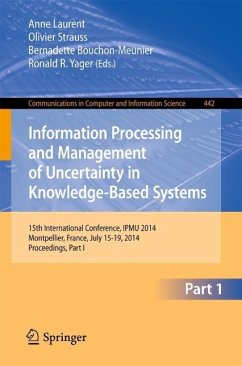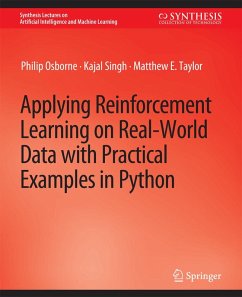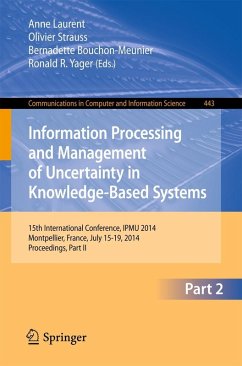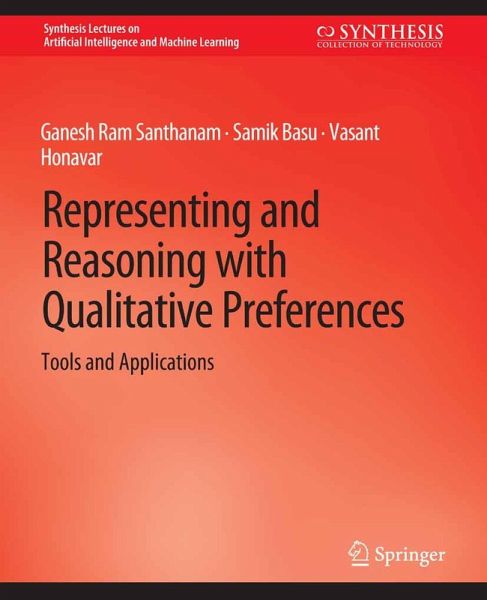
Representing and Reasoning with Qualitative Preferences (eBook, PDF)
Tools and Applications
Versandkostenfrei!
Sofort per Download lieferbar
Statt: 42,79 €**
32,95 €
inkl. MwSt.
**Preis der gedruckten Ausgabe (Broschiertes Buch)
Weitere Ausgaben:

PAYBACK Punkte
16 °P sammeln!
This book provides a tutorial introduction to modern techniques for representing and reasoning about qualitative preferences with respect to a set of alternatives. The syntax and semantics of several languages for representing preference languages, including CP-nets, TCP-nets, CI-nets, and CP-theories, are reviewed. Some key problems in reasoning about preferences are introduced, including determining whether one alternative is preferred to another, or whether they are equivalent, with respect to a given set of preferences. These tasks can be reduced to model checking in temporal logic. Specif...
This book provides a tutorial introduction to modern techniques for representing and reasoning about qualitative preferences with respect to a set of alternatives. The syntax and semantics of several languages for representing preference languages, including CP-nets, TCP-nets, CI-nets, and CP-theories, are reviewed. Some key problems in reasoning about preferences are introduced, including determining whether one alternative is preferred to another, or whether they are equivalent, with respect to a given set of preferences. These tasks can be reduced to model checking in temporal logic. Specifically, an induced preference graph that represents a given set of preferences can be efficiently encoded using a Kripke Structure for Computational Tree Logic (CTL). One can translate preference queries with respect to a set of preferences into an equivalent set of formulae in CTL, such that the CTL formula is satisfied whenever the preference query holds. This allows us to use a model checker toreason about preferences, i.e., answer preference queries, and to obtain a justification as to why a preference query is satisfied (or not) with respect to a set of preferences. This book defines the notions of the equivalence of two sets of preferences, including what it means for one set of preferences to subsume another, and shows how to answer preferential equivalence and subsumption queries using model checking. Furthermore, this book demontrates how to generate alternatives ordered by preference, along with providing ways to deal with inconsistent preference specifications. A description of CRISNER-an open source software implementation of the model checking approach to qualitative preference reasoning in CP-nets, TCP-nets, and CP-theories is included, as well as examples illustrating its use.
Dieser Download kann aus rechtlichen Gründen nur mit Rechnungsadresse in A, B, BG, CY, CZ, D, DK, EW, E, FIN, F, GR, HR, H, IRL, I, LT, L, LR, M, NL, PL, P, R, S, SLO, SK ausgeliefert werden.



